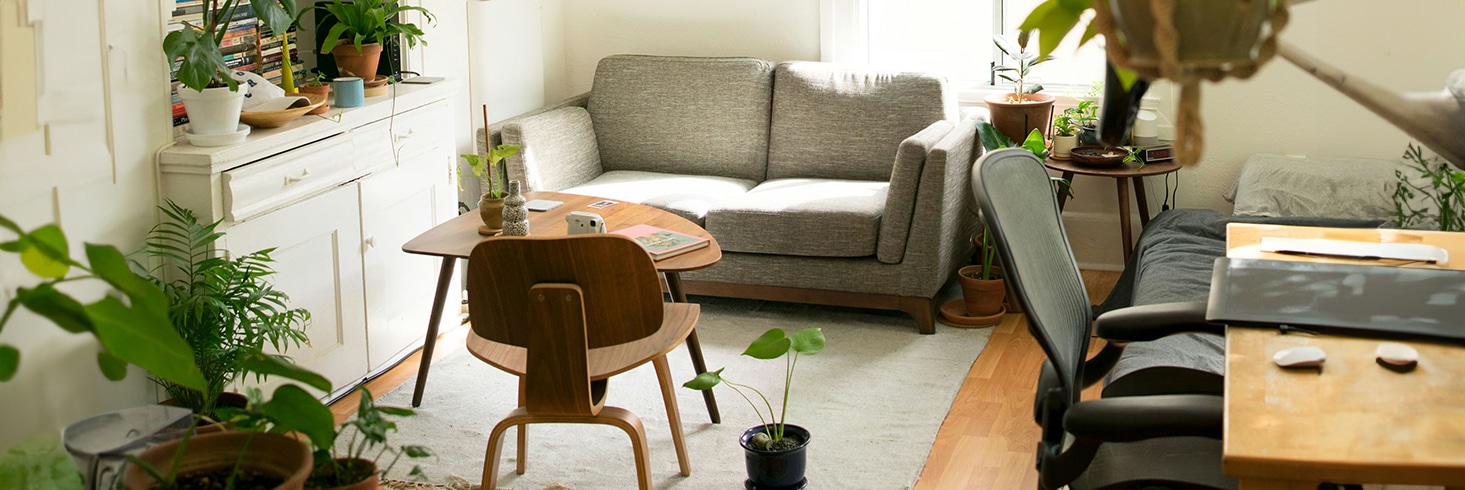
The House Hacking Strategy, Explained
The House Hacking Strategy, Explained
In a real estate landscape often dominated by hefty interest rates, daunting down payments, and generally towering housing costs, house hacking is a game-changer. Basically, this home buying strategy is when you buy a multi-family or single-family house and you live in one unit or room, renting out the remainder of the property. Ideally, the rental income will entirely offset your mortgage payment, freeing you up (quite literally) to live for free. This unconventional approach allows individuals to acquire a home with minimal upfront costs, slashing the traditional 20% down payment to as low as 0%. House hacking transforms the concept of homeownership into a multifaceted investment, allowing individuals to strategically navigate the property market. Still, there are intricacies to consider before diving in.
What is the House Hack Strategy?
House hacking is like getting creative with your living situation to make some extra cash. You buy a property with multiple units or extra space, live in one part, and rent out the rest to cover your mortgage or even make a profit. It’s like having your cake and eating it too — living in your own place while making money from it. House hacking is an unconventional way to offset your housing costs, build equity, and if you move out after a year and do it again, you can begin building a portfolio.
Single-Family House Hacking
Single-family house hacking is a savvy strategy where you occupy one room of your single-family primary residence and rent out the remainder to tenants. Essentially, you’re leveraging your home to generate income. By renting out spare rooms to tenants, you can offset mortgage payments and potentially turn a profit. It’s a win-win — you get to enjoy the comforts of home while tenants help cover your expenses. Plus, as you build equity, you’re laying the foundation for future real estate endeavors. Just make sure you live in the home for at least a year in order to qualify for favorable financing terms.
Multi-Family House Hacking
Multi-family unit house hacking involves purchasing a property with multiple units and renting out the extra units while you reside in one for at least a year to secure the best financing opportunities. This strategy allows you to generate rental income from the additional units, helping to cover mortgage payments and possibly nab a profit too. Living on-site also allows you to manage the property more effectively and enjoy the benefits of owner-occupancy.
Advantages of House Hacking
House hacking offers numerous advantages. By renting out portions of your property, you can significantly reduce your monthly bills or even eliminate them entirely. Additionally, as tenants contribute to your mortgage payments, you build equity in your property faster. With the extra income generated, you can pay off your loan early and accelerate your path to financial freedom. Moreover, house hacking serves as a stepping stone to starting an investment home portfolio. The income generated from your property can be reinvested into acquiring additional properties, diversifying your investments and creating long-term wealth-building opportunities. It’s a smart strategy for those looking to optimize their assets and achieve financial independence.
What Kind of Loan Do You Need to Hack a House?
To house hack effectively, it’s important to understand your loan options. Plenty of programs are ideal for this strategy, each with their own advantages, eligibility criteria, and suitability for financial situations and needs.
- Minimum credit score: 620 or higher
- Down payment: Between 3% and 20%
- Minimum credit score: 580 or higher
- Down payment: As low as 3.5%
- Minimum credit score: 580 or higher
- Down payment: 0%, no down payment required
- Minimum credit score: 640 or higher
- Down payment: 0%, no down payment required
Can You Start House Hacking with No Money?
You don’t necessarily need a bunch of money to start a journey with house hacking. Low down payment options like FHA Loans require as little as 3.5% down and down payment assistance programs further alleviate initial costs. However, maintaining emergency funds is crucial for unexpected expenses. While you may not need a substantial upfront investment, it’s essential to budget for ongoing expenses and unforeseen circumstances to ensure the success of your house hacking endeavor.
The Risks
In true, “what’s the catch” fashion, there are inherently a few risks that go along with house hacking. If you’re at the helm of a house hack situation, you are, by design, a landlord. Managing tenants involves handling disputes, ensuring timely payments, and navigating potential legal issues. Vacancies can disrupt cash flow, impacting your ability to cover expenses. Property maintenance and repairs are also your responsibility, requiring time and financial investment. While house hacking offers financial benefits, it requires diligent management to ensure long-term success in the real estate market, and understanding the risks is paramount to litigating them.
How to Profit
Profiting from house hacking is feasible, especially when you ultimately move out and rent out the entire property. Rental income from tenants can exceed mortgage and operational expenses, resulting in a profit. By strategically managing the property and optimizing rental rates (in an ethical way, of course), you can generate additional income streams. Additionally, as property values appreciate over time, you can further increase your profits when selling the property or refinancing. House hacking offers significant potential for financial gain when executed effectively.
What is the BRRR Method?
No, we’re not talking about freezing temperatures. Instead, the BRRR method involves buying a property, rehabilitating it to increase its value, renting it out to generate income, refinancing to pull out equity, and then repeating the process with the newly acquired funds. Buy, rehabilitate, rent, refinance, and repeat. While not always advantageous, it can be a useful strategy for leveraging real estate investments and maximizing returns.
Where to Start with House Hacking?
If you’re thinking about getting into house hacking, Treadstone has Loan Officers who house hack themselves that can help and connect you with a Realtor who specializes in investments.
Terms and qualifications are subject to underwriting approval and can change without notice. Not all borrowers may qualify. Credit score and down payment examples are for illustrative purposes.
House Hacking can be a real game changer

